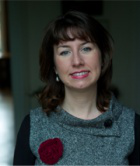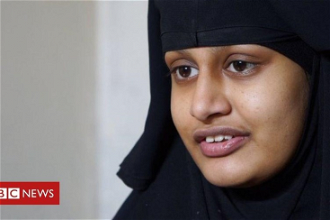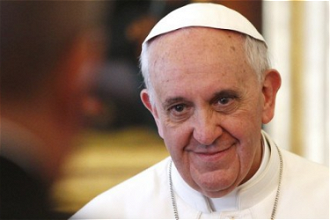Immigration policy denounced by Catholic professor

Dr Anna Rowlands
A highly regarded professor of Catholic Social Teaching savaged the government's immigration policy at the University of Hull last Saturday 12th May.
Delivering the annual Fr Anthony Storey Memorial Lecture, Dr Anna Rowlands, the St Hilda Associate Professor of Catholic Social Thought & Practice at Durham University, said that the 'hostile environment' policy was 'morally deeply dubious and actually evil.' She added that there had been 'poor leadership' at the Home Office and 'very, very poor processes of management'.
Dr Rowlands said: 'The system doesn't know what it's for. It is negative, contradictory. There is structural, governmental failure.'
'For two decades, the Home Secretary has always framed negatively what we are against, not what we are for,' she noted.
Dr Rowlands' wide-ranging but pointed lecture was entitled: 'On the promise and the limits of politics: Catholic Social Teaching and Immigration'.
A quote from Simone Weil served as a prologue: 'The idea of a person's being a thing is a logical contradiction. Yet what is improbable in logic becomes true in life, and the contradiction lodged in the soul tears it to shreds.' (From The Iliad, or The Poem of Force.)
The dehumanising and soul-destroying effects of current governmental immigration and asylum policy on suffering human beings was to be the focus of Dr Rowlands' lecture.
She proceeded to examine crucial questions and to discuss and contextualise these in a thoroughly fascinating and convincing manner.
'What is our duty to the stranger? What does it mean now to be a neighbour?' she began. 'The nadir moment of the Brexit debate was Farage's posters of the "hordes" at Europe's borders, the "strangers at the gates".'
The Windrush scandal showed that now the 'border' was everywhere, that 'the idea of the border was paramount.' Dr Rowlands added: 'The hostile environment policy extended the idea of the border into civil society, into landlord, university or hospital checks. For those living in fear of the border, the border came to dominate.'
The Brexit debate had been about real borders, she noted, but it was also about tensions within our communities. If today we struggle to understand what it means to be a neighbour in our localities, this must surely have profound consequences at a macro level.
'What is the "good" that we imagine our immigration and asylum system should serve and what is the harm that we are obliged to protect each other and the corporate social body from?' asked Dr Rowlands, before adding that we needed conversations about this at the national level, and not just experts, like her, pontificating.
She acknowledged that 'talking about the good can be hard' and that: 'Pressure and confidence push us towards what we are against rather than what we are "for".' The more under pressure we were, the harder it was to answer. She acknowledged, when taking questions from the floor, that the impact of the ideology of austerity was massive as it had created a language and imagery of competitive scarcity.
In a context of zero hours contracts and extortionate rents, it was hard to feel one had a stake in a common weal, but the Gospel message of the Common Good clearly focused on justice for the most marginalised. The Christian perspective turned things upside down; it was difficult and counter-cultural, Dr Rowlands argued.
While there seemed to be an underlying theme in discourse that migration was pathological, Dr Rowlands noted that it was a key theme in the Bible which could itself be argued to constitute a history of migration. She noted the historic condition of the Holy Family, the exilic and itinerant nature of Jesus's ministry, and the priority of providing for the poor, the widowed, the sick and the stranger.
In a moving few moments, Dr Rowlands recalled her visit to the now dismantled migrant camp known as the Jungle, in Calais, and she showed two striking images from the 'plastic Church of St Michael'. The first was of Christ knocking at the door of the soul, which resonated with the idea, played out in several cultures, not least in Advent, of Christ as migrant. The second was by an Eritrean artist and had emerged from Bible and scriptural study. It showed St Michael Archangel doing battle with Satan who cowered under his feet. St Michael bore aloft his 'avenging sword' and carried his scales of justice. Dr Rowlands noted that the artist had maintained the classical iconography of a white angel and a black devil which she found troubling. Nevertheless, the asylum seekers explained that this image represented forcibly to them their constant experience of trying to negotiate their journey, and their constant fight for justice.
She then proceeded to identify crucial aspects of Natural Law reasoning in public policy:
The right to remain.
The right to migrate.
The duty to receive.
The responsibility to provide safe and porous borders.
The duty to provide the means for social participation and integration.
The duty to engage social participation [not assimilation].
Dr Rowlands observed that the Church did not have an open borders policy but rather one that was porous and regulated, and adjudged according to the common good of homes, community, and humanitarian access.
She noted that 'the duty to provide the means for social participation and integration' was diametrically opposed to the government's 'hostile environment'. It was at this juncture that she revealed that she had received off the record acknowledgement from within the Home Office that there had been a policy to be 'really hard to people here now so that others would get the message and be deterred from coming themselves.' It was this that she described as 'morally dubious and actually evil.' Setting up barriers, such as preventing asylum seekers and migrants from studying, stopped integration.
Dr Rowlands described the asylum system as 'morally problematic'. Asylum seekers themselves noted the damaging effects of the system as structured by the Home Office: the sheer waste of time and of human promise, especially when in indefinite detention. 'Everything collapses: mental health, dignity, respect, the sense of self-worth.'
She noted extraordinary stories of migrant to migrant ministry within the most exacting of conditions and then asked: 'Does a policy prevent someone from achieving their share of the goods necessary for their flourishing?'
Dr Rowlands concluded: 'Our primary call is through the fellowship we share in Christ and our call to universal love and universal justice such as the Works of Mercy which don't have borders and precede demands the state makes of us as citizens.'
In response to another question, she stated that the patriarchal, clerical and hierarchical Church institution itself did not practise Catholic social teaching as it should (such as subsidiarity) and that there was a pressing need to rebuild and consolidate Catholic social institutions.
Dr Philip Crispin is a Lecturer in Drama at the University of Hull


















